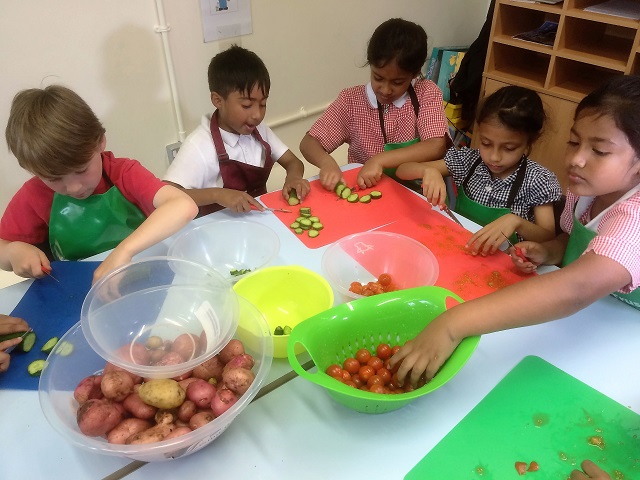
Earlier this month, we caught up with Phil Hesmondhalgh, Head of Communications at the Country Trust, to find out more about what they do and how important it is for children to get into the countryside and learn about food production and where their food comes from.
Check out our interview below and be sure to visit their website for more information.
Our Interview with the Country Trust
1. You currently work in 11 areas of England and Wales. Are you looking to expand your operations over the coming years?
The Country Trust is a small but dynamic education charity, which works with around 25,000 children every year, from primary schools in deprived urban areas, to bring food, farming and the countryside alive for disadvantaged children, by sharing knowledge, igniting curiosity and broadening horizons.
Our operations currently cover London, Hampshire, East Anglia, Birmingham and the West Midlands, the East Midlands, Yorkshire, the North West, North Wales, and Northumberland. Our aim over the next few years is to generate enough sustainable income to double the amount of children we reach.
2. Your aim is to work with children who have the least opportunity to visit the working countryside, to help them learn about food, farming, and the countryside. How do you select the schools you work with?
As a result of fundraising, farm visits are provided at no cost to the school, and subsidies may be available for our residential and Food Discovery programmes.
The Country Trust focuses on working with the following:
- Primary age children from schools with an above average percentage of children eligible for free school meals
- Schools catering for children with special educational needs (SEN) and disabilities
- Looked after children and pupil referral units (PRUs)
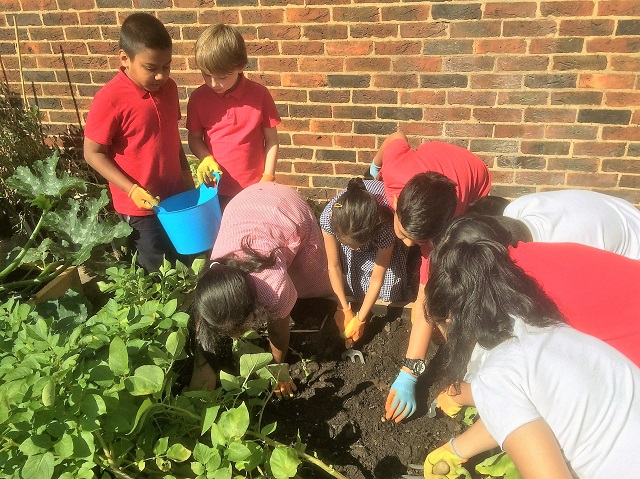
3. One of your core focuses is to encourage sharing experiences. How do you do this?
Every year, we support hundreds of volunteer farmers and landowners to welcome thousands of disadvantaged children from all backgrounds and faiths onto their farms. Our host farmers share their passion for food, farming and the countryside, provide hands-on learning, answer questions, give unique access to crops and livestock, enrich classroom learning, and help children who struggle in the classroom to shine.
On our residential trips, children explore forests, farms, rivers and the seaside. They learn to take responsibility for themselves and they see how others look after the land, livestock, and wildlife habitats. They eat well, learning and playing outside together.
For those schools who sign up to one of our Food Discovery programmes, we teach pupils how to grow vegetables and herbs, and how to cook cheap, healthy, delicious meals from the crops they’re growing and other simple, nutritious ingredients.
Their confidence grows as they explore and taste new foods, visit local farms to see food growing on a commercial scale, meet local 'Food Heroes', run a playground market (where they sell fresh fruit and vegetables to parents), and, finally, cook up a celebration 'Harvest Feast' to share with their families.
4. There are three different strands to your work. Could you tell us a bit about what each is and how they benefit all those involved?
We help children to learn and grow in three ways:
1. Day visits to real working farms
Over the years, the Country Trust has worked hard to build a strong network of inspirational hosts, who, every year and with our help, invite thousands of disadvantaged children onto their farms or estates for the day, to share their passion for managing the land.
Children are invited out of their classrooms, away from any social or academic constraints, and shown the wider world.
They see a wide variety of crops grown on a commercial scale. Learning that farming is a business, they look at huge farm machinery up close and may be inspired at how farming has embraced the latest technology. They have the opportunity to interact with livestock (often a very memorable ‘first’ for the children) and discuss life cycles and food production.
It is very important to us that children really enjoy their day too.
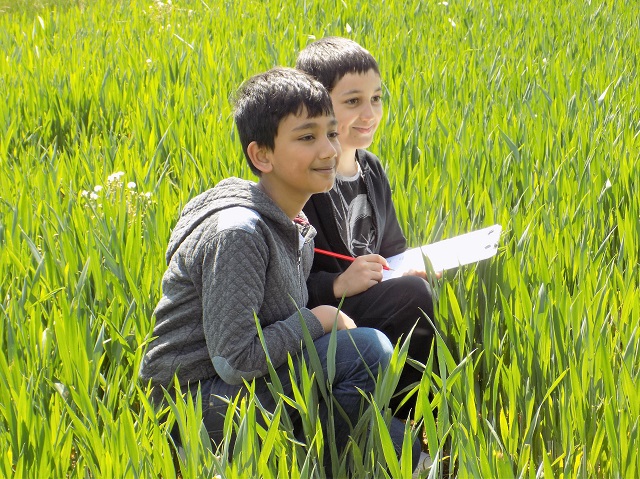
A brilliant day out on the farm helps to build a bank of great experiences and memories to draw on. We know that the opportunity to build positive relationships with new adults is also very valuable. We bring together communities who would otherwise never meet, a crucial contribution to building community cohesion and understanding.
Our skilled coordinators work closely with class teachers and hosts to ensure that the carefully planned interactive activities enhance classroom learning, allow the children to gain confidence in the countryside, give reluctant learners the chance to engage, and give all children insight into an inspirational world, which may have previously been unavailable to them.
2. Residential visits to the countryside
Our 2, 3 or 4-night residential programmes to Norfolk, Suffolk, or the Yorkshire Dales, fully immerse disadvantaged children in all aspects of the working countryside.
The time away allows the coordinators to plan full, interactive days offering children the opportunity to explore our forests and beaches, investigate farms and river valleys, to meet amazing, passionate role models and to develop personal, academic and life skills.
Often working with local wildlife and countryside organisations, our residential visits provide unique access to the countryside, to the people who live and work there, the crops and animals that are raised there, to rural heritage, and the amazing habitats that support a rich variety of wildlife.
Children are encouraged to try brave, new things - to take responsibility for themselves, to have a go at exciting physical activities, to get close to animals, to interact with new people, to try new foods, and to explore new landscapes, a world away from their rooftop school playgrounds.
We also ensure that they can just enjoy being children, eating and playing well together, and spending time outside in the fresh air.
We have worked with many of our residential schools for more than a decade and understand the challenge they face in raising funds for the visit, and in persuading some parents to allow their children, particularly girls, to stay away from home. We raise funds to provide each school with a 25% subsidy.
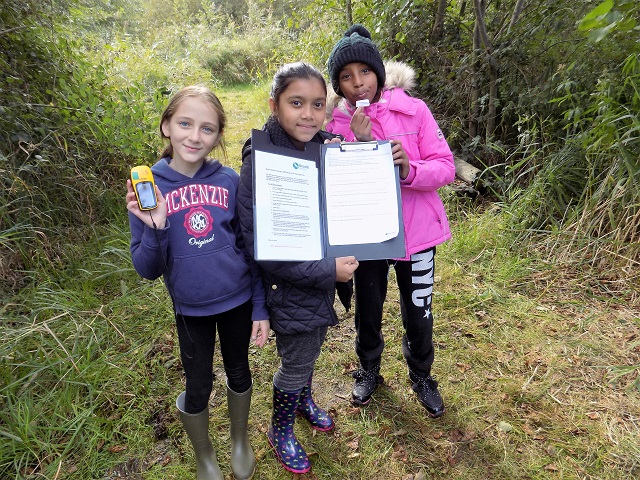
3. Yearlong programmes exploring every aspect of growing, cooking and even selling food
Over the course of a school year, our skilled Country Trust Coordinators work closely with a class or year group, teaching them how to grow vegetables and herbs, and how to cook cheap, healthy, delicious meals from the crops they are growing and other simple, nutritious ingredients.
The immersive programme offers all children the opportunity to take ownership and to develop a sense of agency (what I do makes a difference), to learn how to be patient, to be part of a team, to put classroom learning into a real life setting, to challenge their expectations, and to experience awe, wonder, pride and success.
The government’s recent obesity report finds that obesity rates are highest for children from the most deprived areas, making it even more important that we fundraise to take food discovery further into these areas, supporting teachers and parents to encourage children to understand their food, to feel confident about trying new tastes and textures and, ultimately, to eat better.
We recognise the need for the outcomes of our programme to extend into the home and encourage family members to volunteer and attend sessions, and for children to take their new cooking skills and recipes home.
The Food Discovery programme makes growing, cooking and healthy eating accessible for all children, giving them the inspiration and confidence to make better choices. It gives schools the opportunity to meet new Ofsted health and wellbeing expectations, to enhance classroom-based learning and to engage in an exciting new way with pupils and their families.
5. Why do you believe that it is important to get children interested in not only their food, but farms and the countryside as well?
Low incomes and family stress mean that children often miss out on the experiences that enrich our lives — day trips, holidays, meeting new people, eating well, playing in green space and fresh air. In inner city and urban areas, and increasingly in coastal towns and some rural areas too, many primary schools will have an above average number of children from low-income families.
Our aim is that, as a result of our programmes, children, their parent helpers and teachers are more knowledgeable and more aware of food, farming and the countryside, and are better able to make informed decisions about the food that they eat.
96% of teachers felt that their visit to a real working farm had given the children a better understanding of where their food comes from.
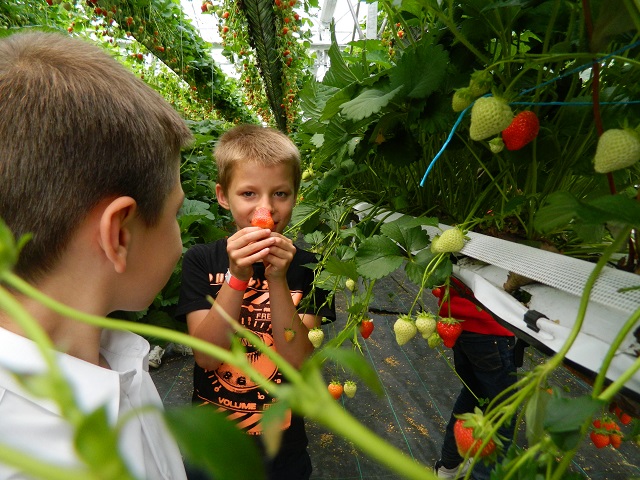
6. Do you think more could be done within schools, by working towards similar aims as your own, and by helping to get children interested in their food and the general environment?
We have established our outcomes over the last year and have been working hard to measure the quality, relevance and impact of our work. We recently surveyed teachers on 346-day farm visits, teachers and children from 26 schools before and after residential visits, and teachers and children from 15 schools before, during and after year-long Food Discovery programmes.
Teachers reported that new confidence, improved speaking and listening skills, growing self-esteem, and enthusiasm for attending school are valuable outcomes of Food Discovery programmes and are vital first steps for improving attainment. 96% of teachers agreed that a farm visit had given children a better understanding of where their food comes from.
For our residential visits, over 90% of teachers felt the links with curriculum learning were very good or excellent, and they identified many positive changes in children’s knowledge, self-confidence and social skills as a result of the residential visits.
We’d like more schools, with our help, to embrace learning outside the classroom.
The opportunities that food, farming and the countryside provide for educational and personal development, particularly for children who experience poverty of opportunity in their home lives, is immense.
We understand that schools are increasingly facing budgetary constraints and will always do our best to help.
It is expected that Ofsted will introduce new requirements around health, emphasising the importance of engaging children in these topics, and the Country Trust is well placed to help more schools.
Thank you for that fascinating insight into your work, Phil. Here at Shedstore, we are passionate about the outdoors and homegrown produce.




